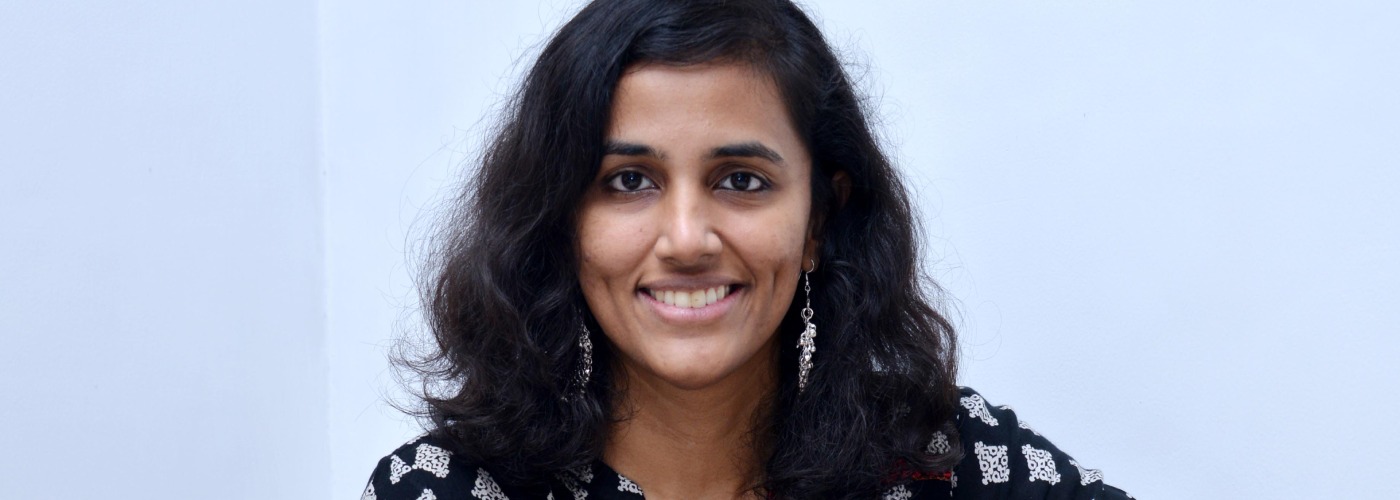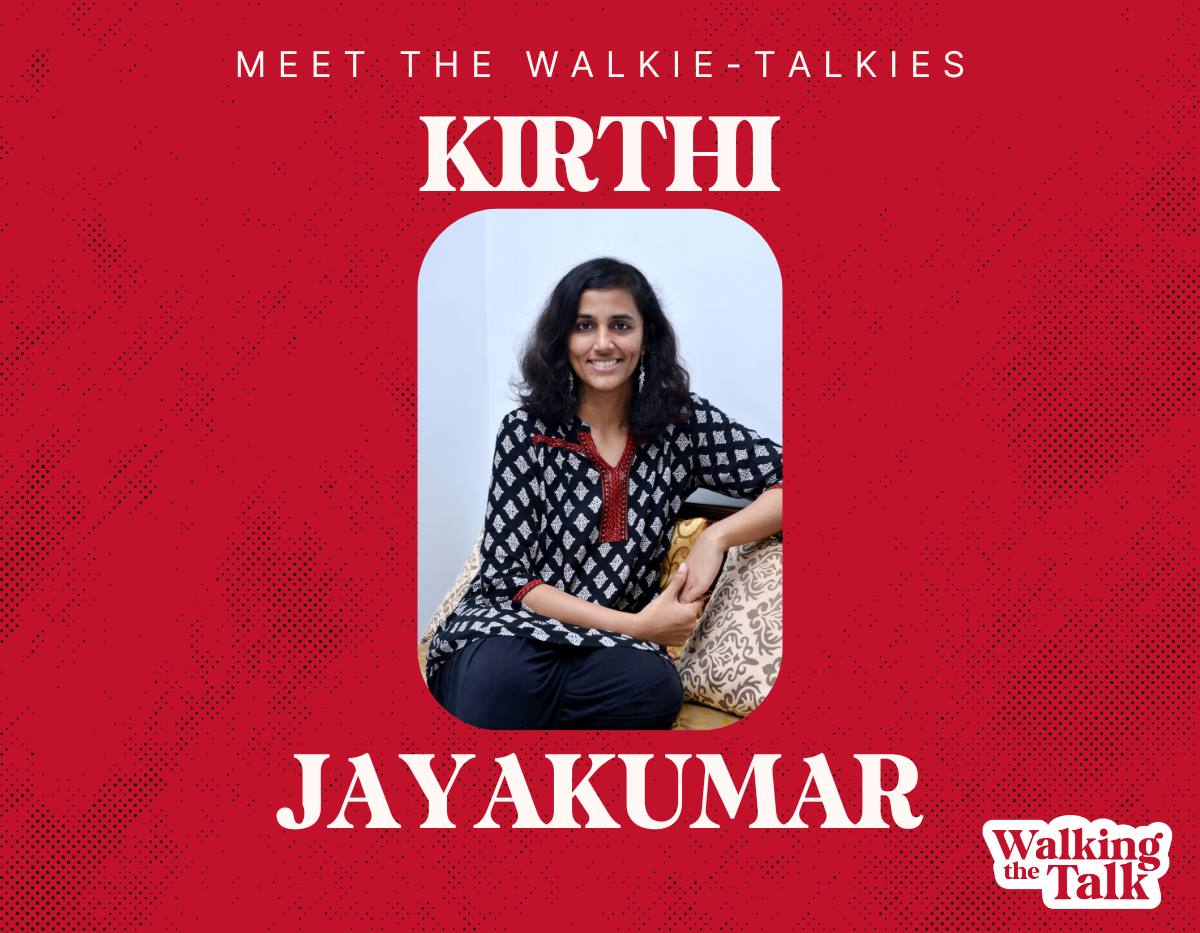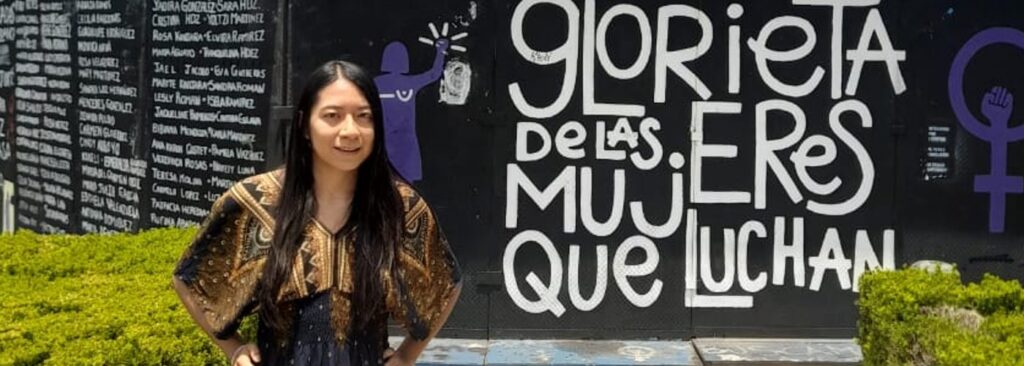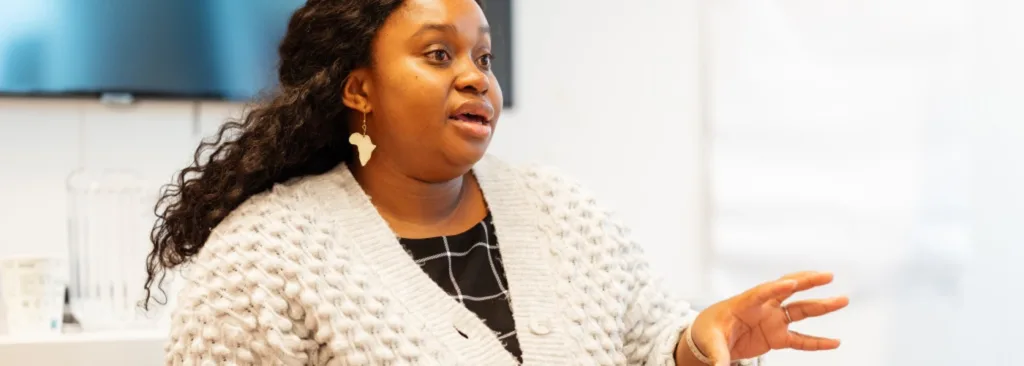The Walking the Talk consortium is proudly working with six exceptional feminists from all over the world – aka our team of “Walkie-Talkies”. These experts bring unique perspectives and invaluable experience to our mission of promoting Feminist Foreign policies, practices, and funding in Germany, France, the United Kingdom, the Netherlands, and the European Union.
How would you introduce yourself?
My name is Kirthi Jayakumar. I work in the fields of Women, Peace, Security, Feminist Foreign Policy, and Conflict Transformation. I run the gender security project and civitas resolutions. I am also an astronomical artist.
Could you share with us a fun fact or something surprising about you ?
I am studying astronomy and astrophysics with dreams of joining the field one day.
What personal experiences shaped your feminist beliefs? In what way?
I think shaping my feminist beliefs is an ongoing journey. If you’d met me when I was 15, I might have told you I didn’t believe feminism mattered to me, and that was purely because I simply had no idea. If you met me at 25, I might have told you I was beginning to learn – especially concepts like intersectionality and structural violence. Now, at 36, I can easily say that I am STILL learning.
In recent times, I’ve come to learn about decolonial feminism, multidimensionality, collective care and organizing, feminist solidarity, and so much more. Every interaction with a feminist leaves me with enough to reflect on, and I thrive on every opportunity to do so.
How would you explain FFP to someone who has never heard of it?
A feminist foreign policy is a feminist way of doing foreign policy. It is not the feminist way, but rather has space for multiple feminisms within it. To me, this means non-extractive, anti-colonial, anti-racist, anti-capitalist, and meaningfully inclusive approaches to dismantling the systemic and structural violence inherent in the institutions of international relations and its allied institutions.
I don’t believe foreign policies are feminist if they are made by a small group of people in the name of a large group of people, no matter how representative the positionalities of the small group may be.
A feminist foreign policy is feminist only if it was made and shaped in feminist ways – meaning, with wholesome representation of every voice that needs to have a seat at that table, with a dedicated commitment to accountability, and with a sharp focus on dismantling systemic violence. In that sense, I think the activity of shaping FFP is a form of peacebuilding in itself – it is confronting a long-existing site of violence in feminist ways.
Can you remember your first encounter with the FFP approach? What did you think then?
I was on Twitter when Sweden’s announcement came up in my feed as a news item. I was intrigued beyond words and excited – it felt like a new potential had been unlocked! I spent time observing events around the world after, and was quickly disappointed by how the transformative potential of feminist foreign policy was neither named nor pursued.
What does FFP mean in your community?
If you mean my community of feminists who think like me, then I’d say it’s very closely similar to what I named in my fourth answer. If you mean a broader subset of women with whom I may share particular identities, then our ideas may include a lot of different perceptions and views because we have multiple feminisms within these spaces and there can’t be a single implication / understanding of FFP.
Can you please describe your dream FFP?
My dream FFP is one that’s led by feminist civil society and reimagines the world order away from patriarchal oppression in any of its forms.
In your opinion, what role can young people play in making a feminist foreign policy successful?
Young people must be part of feminist civil society and pay attention to our collective histories. They can learn from feminist efforts and movements across the majority world and draw ways to come together to create a feminist future.
If you had a magic wand: what would you change in your country or region?
Oh that’s too much power! I’d rather redistribute that power to people from marginalized sections of society to define what change would best support them and then leave it to them to wave that wand.
A favourite feminist song ? ♫
I love Rebel Woman, by Chiwoniso. It introduced me to the idea of multiple feminisms and made me realize that feminism cannot be a one-size-fits-all approach.
About the Walkie-Talkies
The “Walkie-Talkies” are feminists with expertise and lived experiences in gender equality policies and practices. They come from diverse backgrounds and regions, bringing intersectional perspectives on issues such as climate justice funding, SRHR, gender-based violence, and feminist technology. They are committed to sharing lessons, driving positive change, and actively participating in strategic activities within the consortium.





